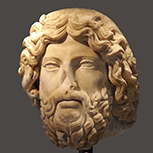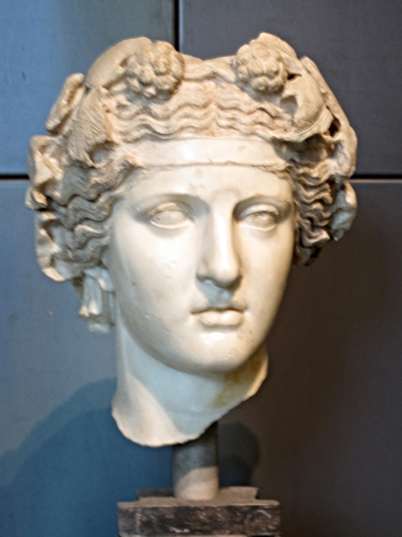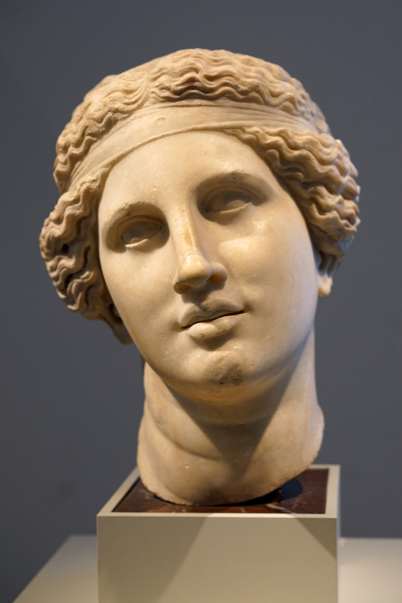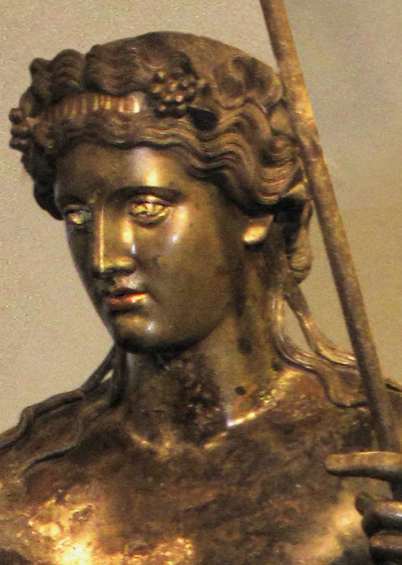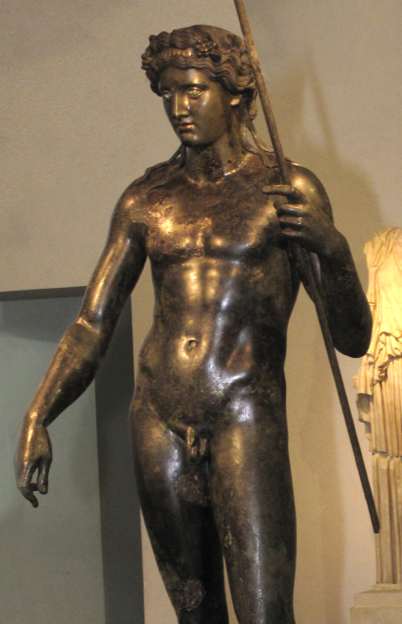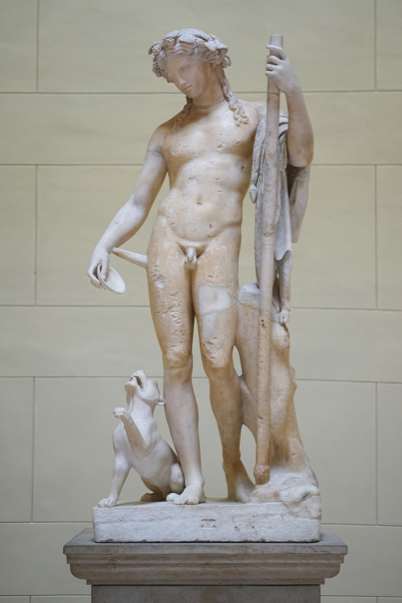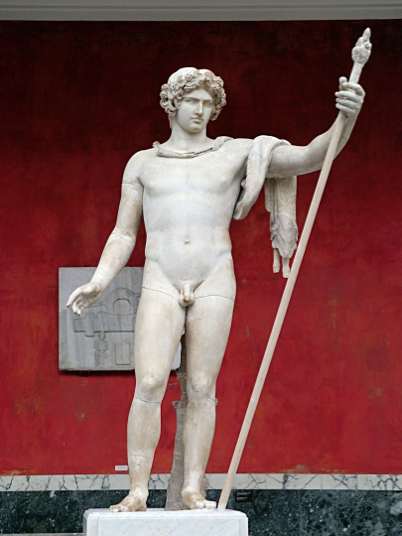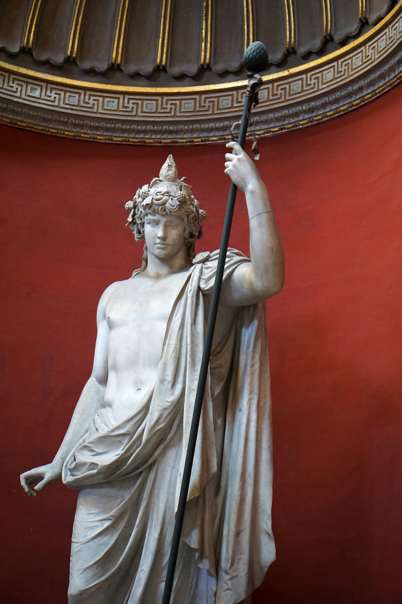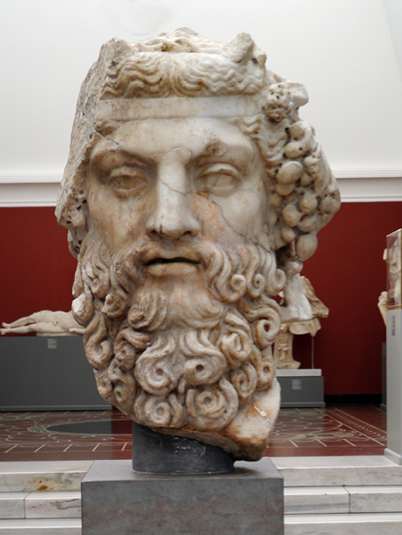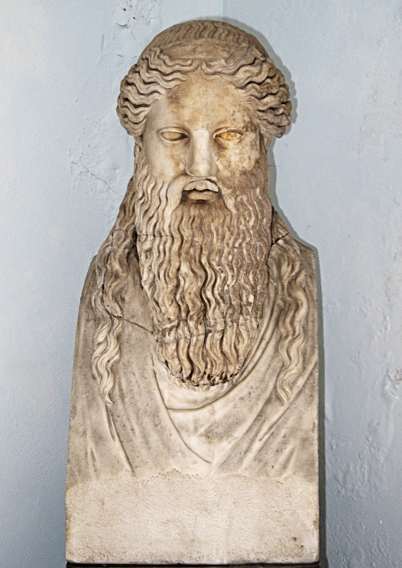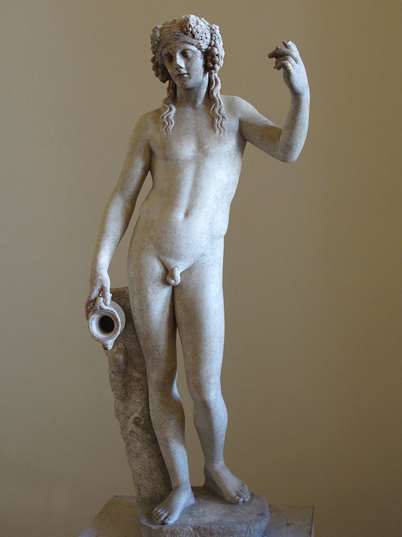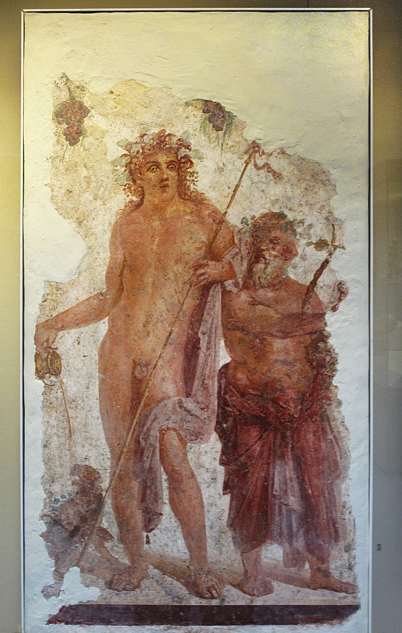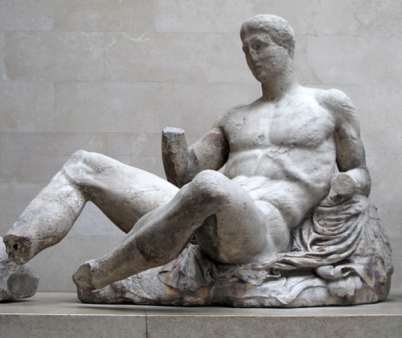The ROMAN CIVILIZATION
IMAGES OF THE ROMAN CIVILIZATION
greek & Roman mysteries
Dionysus & Bacchus
Though Dionysus is the god of the grape harvest, winemaking and wine, of ritual madness, fertility,theatre and religious ecstasy in ancient Greek religion and myth. Wine played an important role in Greek culture, and the cult of Dionysus was the main religious focus for its unrestrained consumption.
His worship became firmly established in the seventh century BC.
The earliest cult images of Dionysus show a mature male, bearded and robed. Later images show him as a beardless, sensuous, naked or half-naked androgynous youth: the literature describes him as womanly or “man-womanish".
He is also known as Bacchus the name adopted by the Romans .
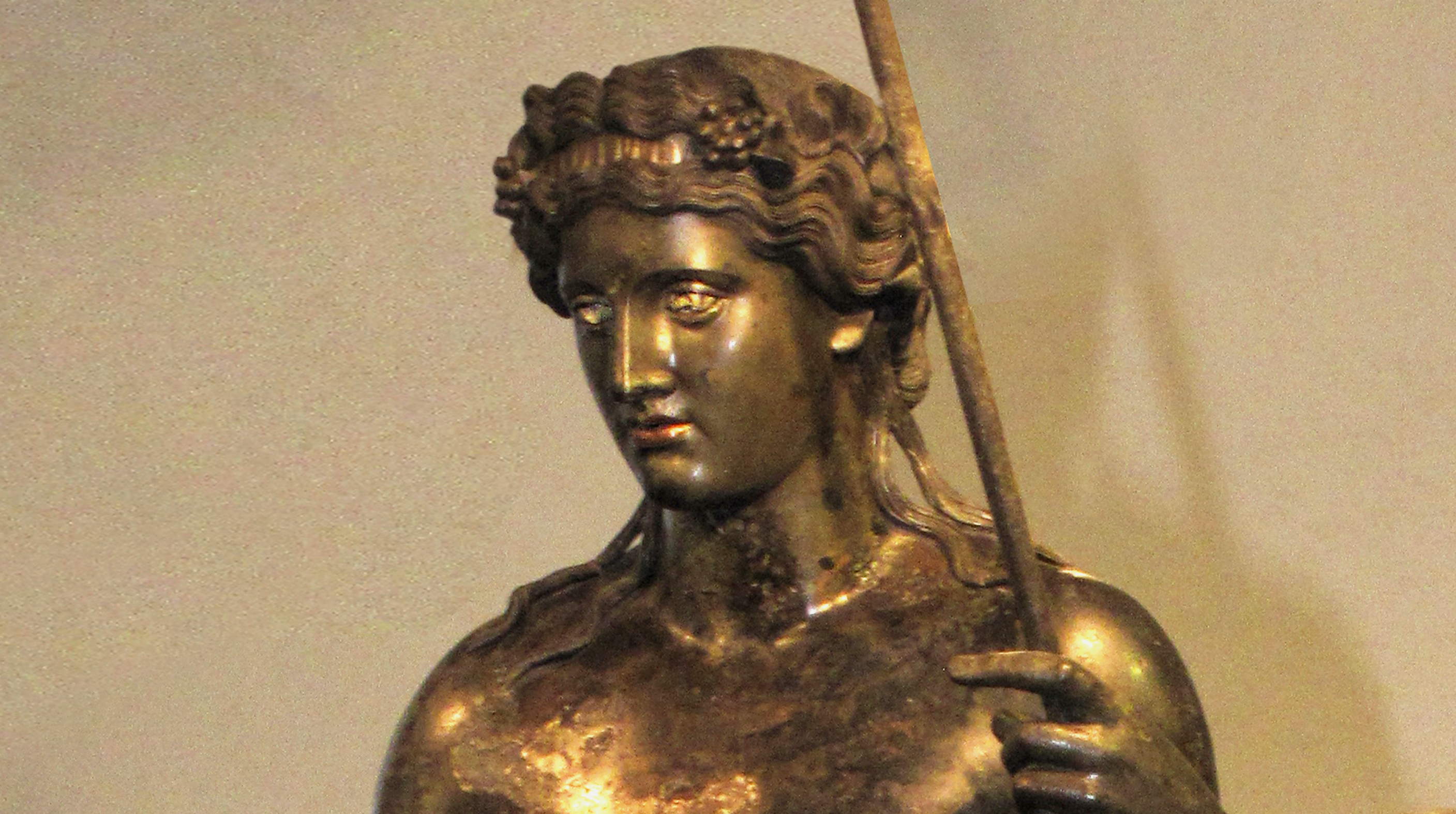
Roman Dionysiac, or Bacchic, societies flourished in the whole Roman Empire
Roman Conquest of THE EMPIRE and Contact with eastern cults .. 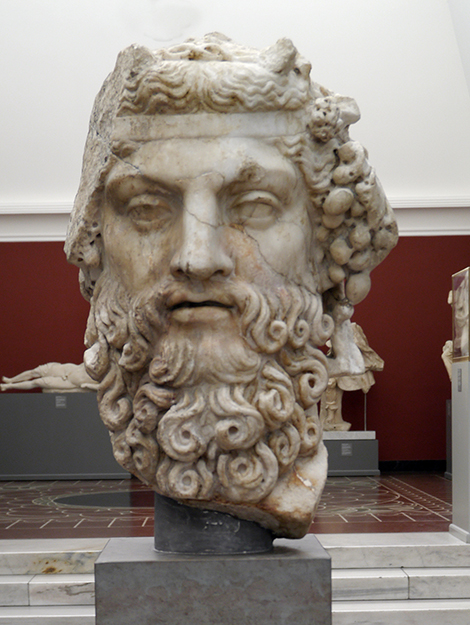
Dionysus, also spelled Dionysos, from the Greeks, the Romans learned of Dionysus, In Roman literature his nature is often misunderstood, and he is simplistically portrayed as the jolly Bacchus who is invoked at drinking parties. who they called Bacchus – the god of agriculture and wine. Perhaps unsurprisingly, this mystery cult’s ecstatic rites included drinking and dancing, liberating its members and inducing a trance-like state. Performances of tragedy and comedy in Athens were part of two festivals of Dionysus, the Lenaea and the Great (or City) Dionysia.
.CLICK ON IMAGES FOR TO IN LARGE ⬇︎
celebrating the wine god Dionysus or Bacchus
were the scene of orgiastic rites.
Initiation into the Bacchanalia, the cult of Bacchus, involved joining a group of Bacchic worshipers and dancing with them in the mountains. Most of these were women, called Bacchants. Some might also have private initiation, and in this case an initiate could be forced to abstain from food for ten days. Then came a period of feasting, after which they would ritually bathe as a form of purification. Only then were they allowed to enter into a shrine of Bacchus.
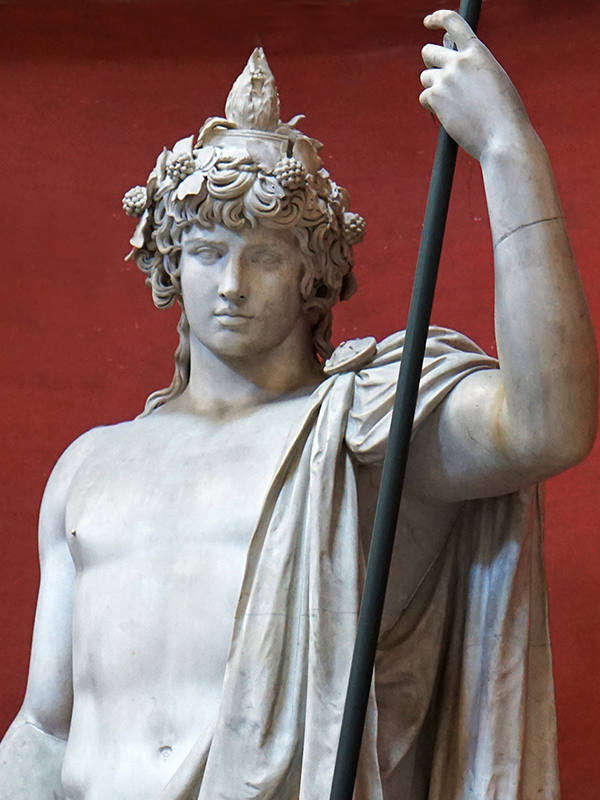
Antinous as Dionysus hadrian's cult of Antinous
After the death of Antinous, Hadrian ordered that he be deified. His statues, as the gods Dionysius or Hermes, Antinous is shown as Dionysius, god of wine and merrymaking, his luxuriant locks of hair crowned with a branch of Italian pine. He is crowned with a wreath of ivy and holds a staff (originally a thyrsus) in his hand. Dionysus was not merely a god to be worshipped, but he was also present within his followers; at those times, a man would possess supernatural powers and was able for things he would not be able to do otherwise.
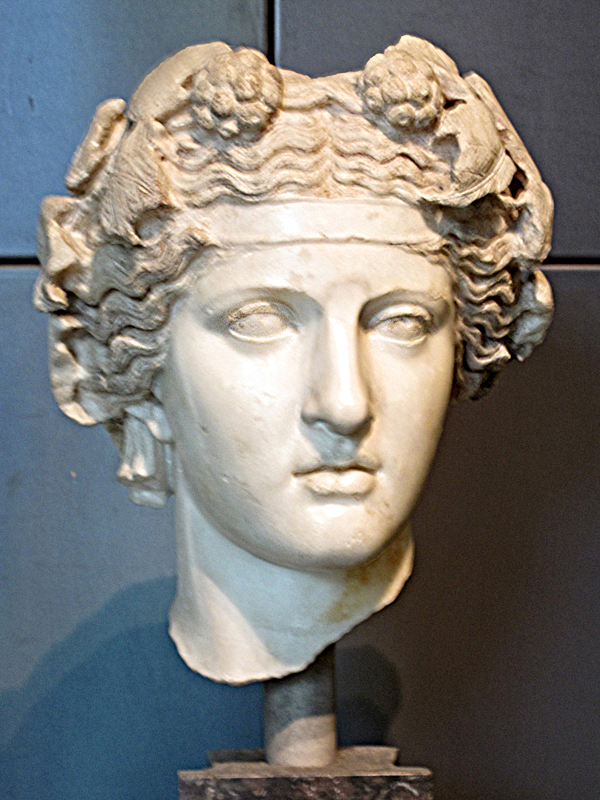
Dionysus a nature god of fruitfulness and vegetation,
Dionysus became one of the most important gods in everyday life and was associated with several key concepts. One was rebirth after death Dionysus was also one of the very few characters able to bring a dead person back from the underworld. Dionysus was not merely a god to be worshipped, but he was also present within his followers; at those times, a man would possess supernatural powers and was able for things he would not be able to do otherwise.
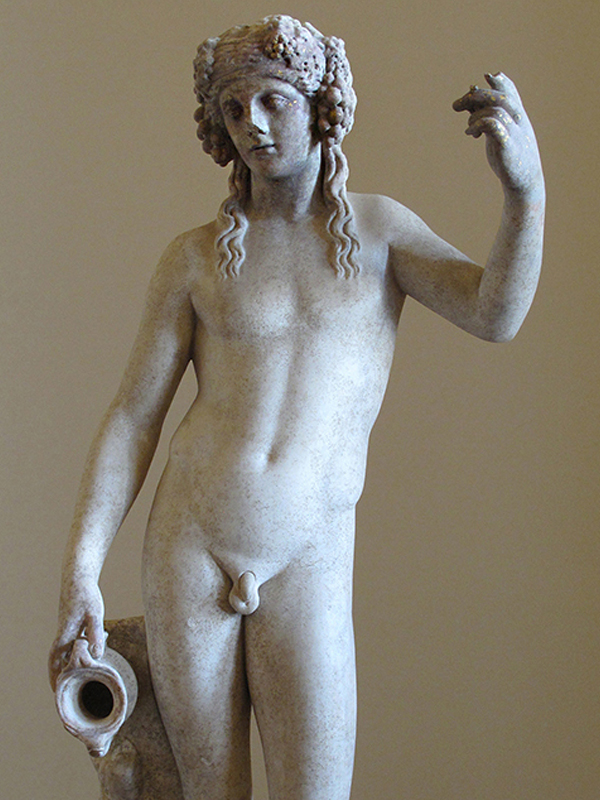
Bacchus is a Greco-Roman god from Greek mythology
Bacchus was the ancient Greco-Roman god of wine and festivity. He was accompanied by satyrs (representing lust) and maenads (dancing girls or nymphs). He was taught by Silenus, who is often shown in Bacchus' entourage as old, fat and riding on a donkey. Bacchus is sometimes shown in a chariot pulled by leopards. After the 5th century B.C., Dionysus was known to the Romans and Greeks as Bacchus. Bacchic revels were a favourite subject of vase painters. Dionysus that came from Greek mythology.
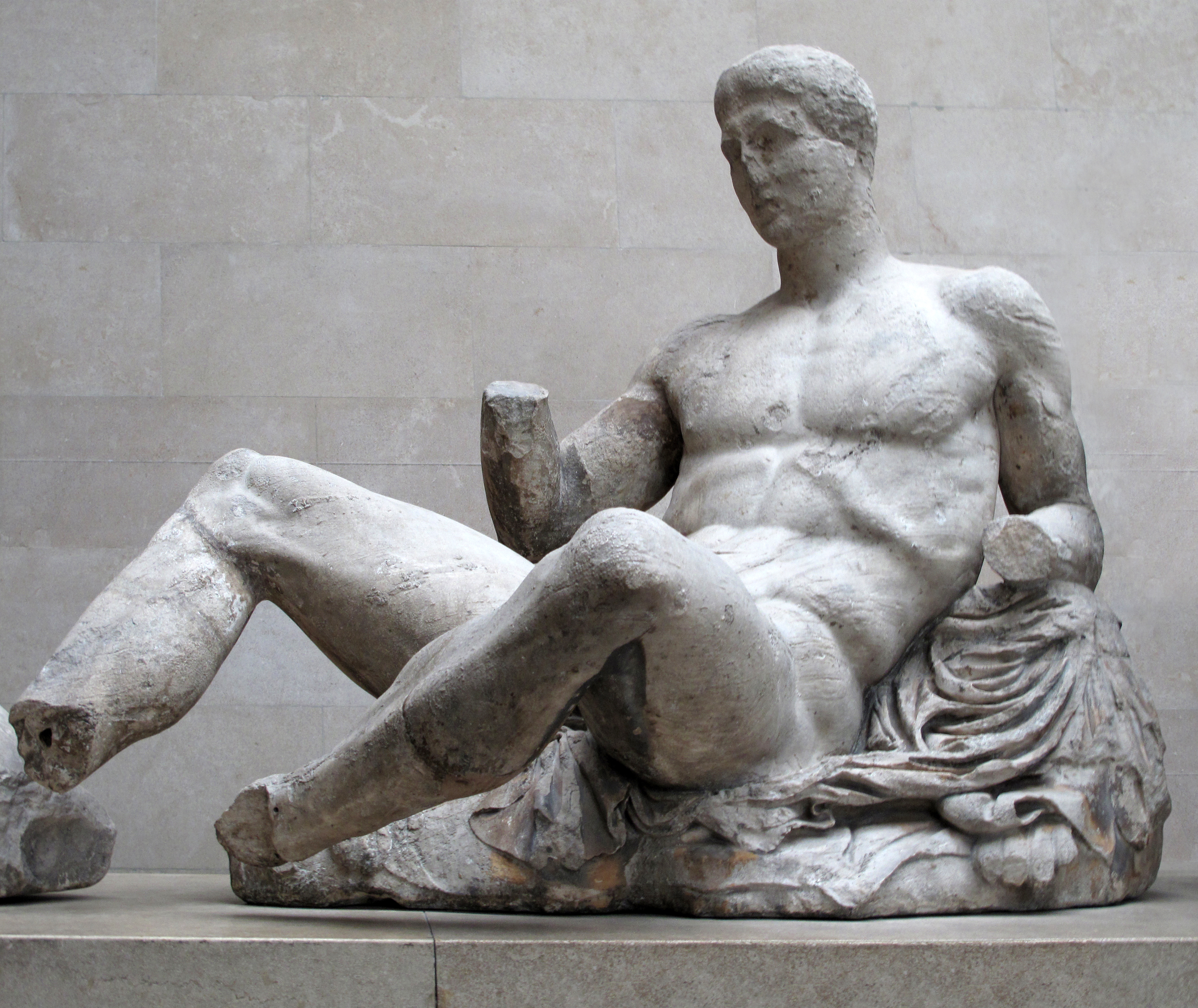
the Greek Theater and Dionysos
The development of Greek Theater came out of worship of Dionysus in Athens. The major festival at which the competitive tetralogies (three tragedies and a satyr play) were performed was the City Dionysia. This was an important annual event for the democracy. The theater of Dionysus was on the south slope of the Athenian acropolis and held room for an audience of 17,000. There were also dramatic contests at the Rural Dionysia and the Lenaia festival, whose name is a synonym for 'maenad', Dionysus' frenzied worshipers. Plays were also performed at the Anthesteria festival, which honored Dionysus as god of wine.
